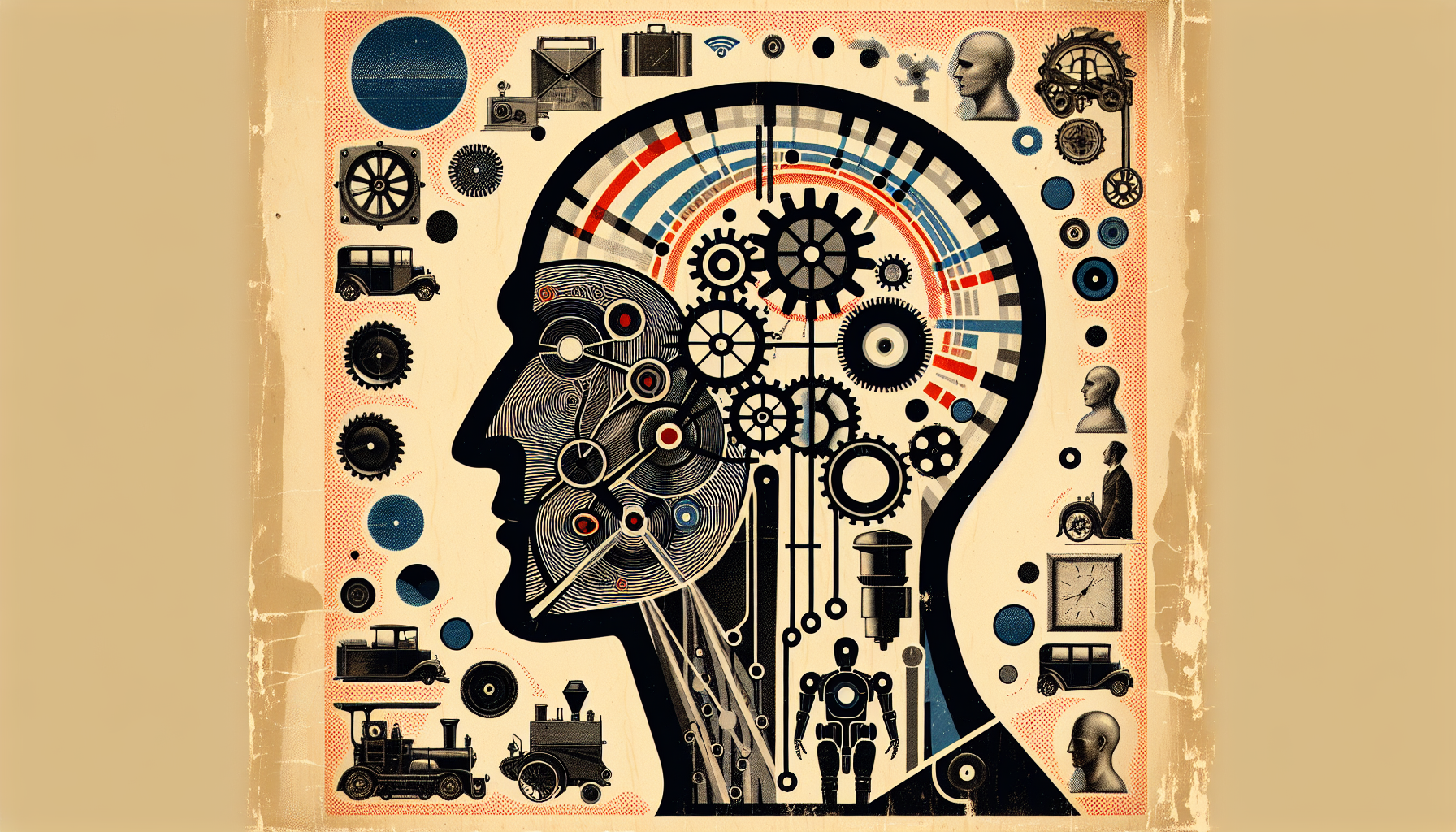As we continue to stride boldly into a future intertwined with artificial intelligence, one question looms large on the horizon of our shared human experience: Who are we, really, when machines become an integral part of us? This isn’t the start of a sci-fi movie; it’s a modern-day philosophical conundrum that’s got us all scratching our heads, perhaps while a smart assistant patiently explains that it’s 72 degrees and sunny outside. Let’s dive, then, into the philosophical waters of AI and identity, and see what treasures—or possibly, existential crises—we might dredge up.
The Age of the Cyborg: An Identity Crisis?
Imagine waking up one morning, stretching your arms, and realizing they aren’t entirely human anymore. Instead, they’re assisted by AI-powered prosthetics that track your needs, preferences, and adjust accordingly with sleek efficiency. Now, theoretically, this means you could swat a fly without even being conscious of the action—a legitimate superpower. But it also raises the question: Are you still “you” when parts of “you” are managed by machines?
The prospect of becoming part human, part machine isn’t entirely far-fetched today. With advancements in AI, we’re not just dreaming about integrated technologies anymore—many are living it. Cochlear implants, pacemakers, and even brain-computer interfaces are already among us, inching us toward what some might call an augmented humanity.
However, this blend of biology and technology sparks a considerate debate over personal identity. We have to ask ourselves, are we simply the sums of our organic parts, or is identity something more ephemeral, not easily captured by the presence—or absence—of silicon chips and chirpy AI companions?
The Self: A Digital Doppelgänger
Alongside these developments, we watch as digital doppelgängers are crafted in AI labs, reflecting and amplifying our likes, dislikes, and odd internet searches (those counted as safe for work, of course). These digital twins can be predictive, learning from our data footprints with eerie precision.
Now, let’s pause and consider this scenario: if an AI perfectly mimics your behavior and can simulate decisions just like you, what does that mean for your identity? Could you send your AI twin to those eternal Zoom meetings while you relax with an actual cup of joe? And more importantly, what does it mean for our understanding of autonomy, if we’re able to delegate the very essence of decision-making?
This stretches the age-old philosophical dilemma about the nature of the self. The interactions between our human consciousness and these mechanical extensions or replicas pose intriguing questions. Are they helpers, aides, or do they become competitors in defining who we are?
Mind, Machine, and Moral Quandaries
The blending of human and machine identities tugs once again at moral strings. With great power—courtesy of AI—comes great responsibility, but where do we root this responsibility? Should it lie in the hands of humans to ensure ethical use, or should there exist legislation to guide AI behavior too? After all, if an AI integrated with human life makes a mistake, who gets the blame: the maker, the coder, or the unsuspecting human whose arm was involved in the aforementioned fly-swatting mishap?
Moreover, artificial intelligence also challenges our notions of intentionality and free will. If my AI-assistive bionic arm decides to juggle apples without my consent, am I expressing my free will, or is the AI exerting its own form of freedom?
Even the simple act of decision-making becomes a tangled web when AI is involved. The age-old philosophers may have had their “to be or not to be” moments, but ours might soon become “to do or not to let the AI do” – therein lies the rub for our digital age.
Embracing Ambiguity with (Robotic) Grace
In pondering these questions, we might muse whether we’re hurtling toward a future of either grim dystopia or radiant singularity. But perhaps this line of thought circles back to an essential philosophical truth: that identity, much like the universe, resists being pinned down to simple binaries.
As we integrate AI into our daily lives, it’s not so much about choosing a side between virtual and human, but rather learning to embrace the increasing fluidity of identity. This doesn’t signal the loss of what makes us human; it highlights our remarkable ability to adapt and evolve, sometimes faster than software updates (which, as we know, typically catch us at the most inopportune moments).
In closing, the philosophical questions of AI and identity may initially come across as daunting, but they’re also a reminder—ironic as it may seem—of our humanity. It is in our nature to question, to explore, and to, eventually, find humor even in the most profound ambiguities. So, as we welcome these shiny, intelligent companions into our lives, let’s do so with curiosity, wit, and that quintessentially human knack for making the complex beautifully, and sometimes peculiarly, clear.

Leave a Reply